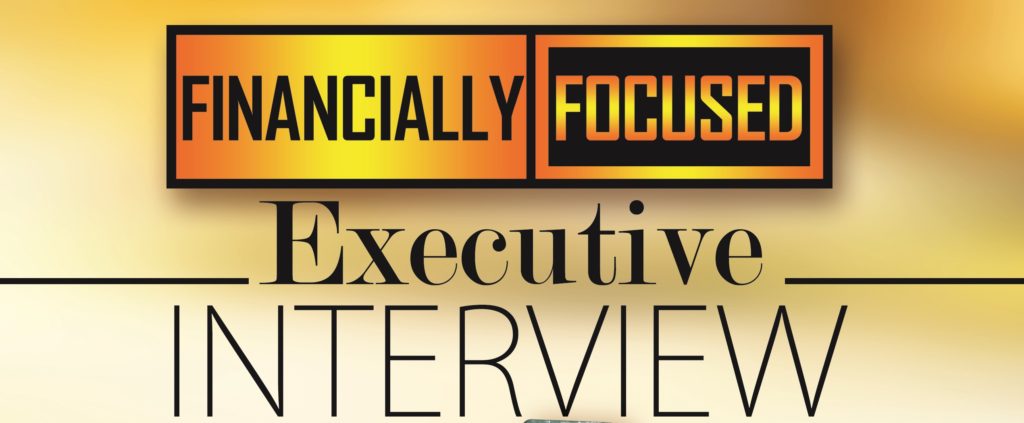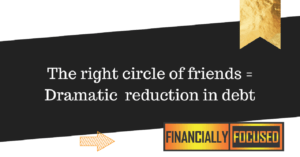
If you think sales is tough, join the club. However, on this episode of Financially Focused, we found a group of people who think sales is the most natural thing in the world. These sales experts are ready to share their ideas with you. Paul Bryan and Duane Lue Fung are the team of THINK GROW LEAD which not only teaches sales, they outsource sales for companies and offers to recruit services. Debbie Turner has turned sorrell into a sexy export product from Jamaica. And so we believe they have a thing or two to say about sales.
However, we know that people still have a mental resistance so there are alternatives to build your sales muscle. Perhaps you prefer the sales people to pay you to shop. In that case, you may want to check out Ebates.com and register to get paid each time you shop. However, if you want to get to the heart of the matter and learn why you are not as wealthy as you think you should be, check out the profile developed by Roger Hamilton at GeniusU.com and find out where you fall on the wealth spectrum or what sort of entrepreneur you really are. Either test will help you uncover the blocks that keep you at the level you are rather than the level you wish to be.
That said if you are ready to take your sales knowledge to the next level, watch the video and enjoy our transcript below.
Watch video here!

Financially Focused panel of experts. Host, Dennise Williams, followed by Duane Lue Fung and Paul Bryan of THINK GROW LEAD. And Debbie Turner, queen of Jamaican sorrel products.
Transcript
Dennise Williams (DW) 00:31 : Welcome to Financially Focused, I’m your host, Dennise Williams. There’s a four letter word that makes many persons uncomfortable, S-E-L-L, sell. Yes, I said it, the four letter. Sale, for many persons, is a dirty word. It has so many negative connotations, but according to the panel that we have here, sales doesn’t have to be icky, sleazy, or just plain annoying.
In this episode of financially Focused, we speak to a panel of experts to uncover what sales is really about, and how you can create a sales process that is authentic to you. Your negative view on selling may be holding you back from achieving the success you desire. From the Think Grow Lead Sales Training Company, we have Duane Lue Fung and Paul Bryan. Welcome.
Paul Bryan (PB) 01:23 : Thank you.
Duane Lue Fung (DLF) 01:23 : Thank you.
PB 01:24 : Good to be here.
DW 01:24 : The rose between the thorns is Allison Turner from Turner Innovations. This company is turning the sales of sorrel into an international experience. Panel, I’ll start with Duane, why do so many people go into business, yet hate the part of the business that requires selling its products and services?
DLF 01:50 : That’s a good question, and is one of the reasons why most businesses fail a lot. Entrepreneurs fail to understand that products don’t move themselves; you need to have a concerted effort to get things moving. Einstein has a good saying, I like it, it says, “Nothing happens until something moves.” In sales, we say, “Nothing happens until a sale takes place.” Which means, whatever service you have, if you do not have the ability to go out and influence, persuade, and convince people to take your products or service, I can guarantee you that that business will not last long.
DW 02:29 : Paul, how do I take the ‘ick’ out of selling? I don’t like it, it makes me uncomfortable.
PB 02:35 : A couple of things, we are all selling, we have all sold many things. I think the rub comes when people believe that selling is begging. Selling is not begging. I think the rub comes when people believe that they are lesser than somebody who they are exchanging their services with, or who they are asking to pay money for the services. If we can just get out of our own heads about this perception that it’s begging, it’s beneath me, it’s trying to solicit people’s money. If we can get out of this mind frame that to sell means you’re sleazy, I think that mainly came from the sleek selling salesman and the five times you bought something and couldn’t find where to return them, and nobody wanted to give you back your money, so there’s some justification. But if you’re an entrepreneur, you want to fall in love with selling.
DW 03:28 : Debbie, you’re in love with sorrel, and as much as you love the sorrel that Turner Innovations makes, they don’t sell themselves. How did you get into the hustle of getting Jamaicans to consider sorrel in their salads, or as a drink, or a snack, other than sorrel at Christmas time, which we all do?
AT 03:54 : For me, I agree with these gentlemen here about selling, but I think it’s a lot deeper and a lot more than that. For me, personally, it’s about passion. It’s key to be passionate about something to be able to want to sell it the right way. As far as I’m concerned, if I’m going to make a sale, you’re the lucky one to be in my presence to be able to get the opportunity to get it, that’s my attitude, and that goes across to the person which gives them a kind of “Ou, I have to hear a bit more about this.” It’s mainly about being able to turn people on, and that’s what sales is all about, getting their attention and turning them on. I didn’t find sorrel, I didn’t go and say this is a great product to market, sorrel found me. It could’ve been anything. It could’ve been air, and I would sell you and you would spend your money and buy the air, and you’re already breathing. It’s really about loving what you do and sharing that passion. We’re all humans, we all have emotions, and we all get turned on by emotions. For example, I worked in the UK for many years doing door to door sales, and England is very cold and wet, and I used to have to knock on people’s door between 7 and 10 pm.
DW 05:10 : What were you selling?
AT 05:12 : Cable, telephone, and internet. They were on one system, and I had to convince them to switch over to another system. It was, for many, a horrible job, because could you imagine, you’ve been at work all day, you’re tired, you’ve been doing what the boss has been telling you to do. Then you get home, and you’re glad to shut that door, and you don’t have to answer to anybody anymore, you play with your kids, you get your supper, it’s nice and warm, you’re in front of the TV, and then somebody knocks on your door, and says, “Oh, I want to sell you something,” a stranger. It’s a very fearful situation for a lot of people to go into, but I loved it. What drove me is the fact that I could connect with people. The first thing that I would do is that I would walk on to their porch or verandah area and I would see what was outside. For example, if I saw a pair of football boots, I knew that this family was about sports, so the first part of my conversation would be, “Oh, do you like football?” and straight away, they would light up, and I would connect. So, it’s about making a connection. If I saw children running around, I’d talk about school, and straight away, they were turned on.
It’s a delicate balance because you can actually become too forceful in sales, which turns people off, and if you have that too forceful approach, then you’re going to be a failure in sales. There’s a balance, and you have to understand to be able to read people. It really comes from a place of passion, and about understanding. That’s where sales is, and when you’re comfortable, then people become comfortable.
DW 06:37 : Paul, I would say Debbie is a natural talent, but can sales be learned?
PB 06`:46 : Let’s distinguish sales. There’s a kind of sales we call professional selling. There are many things we sell day to day. We sell our wives and husbands on going over there or coming over here, or our kids to do X or Y, so we sell naturally. Professional sales requires training, for several reasons. One is that consumers, though they have a lot of information, may not have the insights to choose what’s really best for them. If you’re a really great salesperson, you want to know that your job is to help people select the thing that’s best for them. Sometimes you need training in that. Why? Because there are different personalities that you’re going to engage with. Why? Because there are different products and different ways to sell. Why? Because as a salesperson, you really have to understand your timing, you have to be able to read signals. That’s not naturally given to you, you have to learn and develop those, and I would say if you’re in a business and you’re an entrepreneur and you want to be successful, you want to set your mind on becoming a sales professional. And a professional is someone who studies, who practices, who develops discipline in a particular set of habits and skills that have them be someone that people want to talk to. In professional sales, you need to be taught, and all the great professional salespersons were taught. Some come with some natural flair, but to be at the top, you have to be trained and mentored to grow.
DW 08:18 : Duane, you and Paul’s company, Think Grow Lead, is about training and placement. What did you guys see as a need in Jamaica, that allowed you to get into the business of selling sales training?
DLF 08:33 : That’s a good question. Really, what we saw was a lot of entrepreneurs reaching out to us, just asking us for help. Myself, especially, I was in the Business Solutions industry, I was an expert in selling copiers. I grew a copier company from zero to a multimillion dollar company. How I did it was on pure muscle, salesmanship. Then after I left that industry for a little bit, I had people calling me asking me if I could come and consult. They said, “Listen, I can’t pay you, but could you come and consult and kind of guide me as to how we can get our sales infrastructure moving.”
I remember hearing this over and over again that there is a need or a gap because they could not find any sales development companies here locally. People have brought in external trainers, and many trainers from overseas, and one of the biggest problems we found is that they have what we call a cultural gap. Although they may have the content, it’s really hard for them to connect with the people here in terms of culturally- how we sell in Jamaica, how we sell in the Caribbean. There’s really just a big need and a gap here. If you ask Paul and I, what are the five most calls that we get daily at the office, it is, “We’re looking for good salespeople. Can you find us some good salespeople?” Not “Do I need sales training”, but they are looking for good salespeople. The market really has been clamoring for, not just people who understand sales training, but understand sales development because there’s a big difference.
Sales training is coming in and doing one workshop. We tell people and we assert that that’s helpful, gives insight, and it’s educational, but does not give you what we call long-term sustainable results. It’s like going to the gym. I could go to the gym and start lifting weights today and for the first week I might look a little different, but it’s the guy who is going there for three to six months, and he’s doing reps and sets consistently. The problem is that there weren’t any reinforcements in terms of how it’s done, the consistency, and what you put there to ensure that you can hold the training accountable. That was lacking in the industry. That’s really kind of the gap that we filled because we took what we call a holistic approach. We look at the systems, the people, the process, leadership and align it, and ensure that when we come in, we look at more of a long-term development plan as opposed to a blip in a workshop.
DW 11:11 : Allison, as you grow your business, and I must say, I love your products.
AT 11:17 : Thank you.
DW 11:18 : You not only have to sell to supermarkets and consumers, but you also have to sell to investors because you have to grow your business; you have to sell to the export market. Can you share with us, briefly, that process because there are a lot of different sales hats that you’re wearing.
AT 11:39 : Again, for me, sales is a very natural process, I’m very passionate, and you’ll hear me say that word a lot. Yes, there are definitely tools, I so agree with you. Not everybody has that natural ability, but they can develop it with good training, so I totally agree with you. To me, every day is a sale, every movement is a sale. I want new shoes from my husband, I’ve got to sell the idea to him. every move I make, if I want my staff to perform, I’ve got to sell the idea to them that there are going to be benefits. You have to show people benefits, you have to get them interested, and it doesn’t matter who they are, it could be the Queen Mother, it could be anybody at all; it could be the very person on the street that you just want to stop the car so you can cross the road, it’s a sale. How you approach, how you connect, and how you go forward to get what you want.
There’s nothing sleazy in selling. I do promotional talking, mentorship, and motivational speaking at a lot of schools in Jamaica now because of the journey that I’m on and the success that we’re having. One of the things that I always have to talk about are my three SW’s. So, it’s the attitude. Those three SW’s are Some Will, Some Won’t, So What? That’s key for me because you are going to make mistakes. You’re going to get it wrong sometimes, but that is your gym that you were talking about. You aren’t catching me in any gym, but I understand your concept. You go, and the more you practice, the more you do. So, I try to sell you something and it went wrong, but what did I learn from that experience? When was that point that the person was turned off or did not respond to me? What do I do to change that? I’m going to practice it on the next person and I keep repeating until I get it. You have to keep going. If you’ve made up your mind to be in sales, it’s a highly competitive area, there are a lot of things to sell out there, as I said, you can sell anything you want.
DW 13:39 : Do you have to have a different approach to selling a supermarket as opposed to selling an investor?
AT 13:43 : No, it’s the same approach, it’s a principle that you have of belief in what you’re selling. If you’re not going to buy it yourself, or your sound like you doubt your product, how can you expect anyone else to believe it?
DW 13:57 : Paul, that brings my next question- Authentic Selling. Give me two or three tips on how I can develop a ‘Debbie Turner’ attitude, you know what I mean?
PB 14:12 : Go home with Debbie Turner.
DW 14:14 : She sells her way, but how can I do authentic selling that is me?
PB 14:19 : Debbie kind of gives you the recipe. Connect with something that is important to you. Connect with something that you are proud to stand behind, then how you communicate the benefits, the advantages, the experience of having that would come across naturally. Be genuinely interested in the welfare of the people that you’re selling to. Really want to have them and their lives be better because you’re doing what you’re doing, then it will come across more naturally, more authentic. Recognize that your job is to really add value, and be OK with ‘the more value you add, the more money you’ll get.’ It will come, you don’t need to rush it, and it will come when you add value and you help people to choose what’s best for them.
DW 15:10 : Duane, giving you the last word. In terms of developing that sales muscle, give me five things to do every day to develop the sales muscle?
DLF 15:21 : Wow, five things to do every day? You have to read every day.
DW 15:29 : What does that have to do with selling?
DLF 15:30 : The reason why most people end up not, as we say, advancing in sales; think about it, in the last maybe 20 years, there have been about 4000 books that have been written on sales. And if you ask most salespeople, have you read one? “No.”
AT 15:50 : It’s important.
DLF 15:51 : It’s important. If you’re in a particular field, and you’re not updating your information. You buy this phone today and by the time you go home, it says updating. There are too many sales methodologies out there, and we were talking earlier about the different types of selling. If I’m in IT, I can’t sell products in IT the same way I’d sell products in banking. There’s Solutions Selling that’s designed specifically to teach you how to sell high ticket items. It’s a different sales to sell fast -moving consumer goods. You really do have to understand different sales methodologies. There’s consultative selling, spins selling, relationship selling, value selling, and how can you be a professional, how can you be at the top of your game, how can you be a Usain Bolt or a Michael Jordan and really just don’t understand your game.
To really get to the top, what we call the ‘four percenters’ or the ’20 percenters’ in the industry of sales where you become millionaires in an industry, you have to get to mastery, and it’s mastery or nothing at all.
DW 16:58 : And that’s reading?
DLF 16:59 : Mastery takes practice. First, reading. It takes a high level of what we call ‘believing in yourself’ because 80 percent of your success in sales is psychology, not skill.
DW 17:09 : Yeah, but what if I don’t like myself?
DLF 17:10 : You’re done. Because you have to deal with what we call the ‘self-limiting beliefs’. Within your sales DNA there are some hidden weaknesses that you have. Most of the time what sabotages your sales is not your skill, most people have the skill. Most people know how to take up a phone and prospect. It is the hidden weaknesses, things like having a need for approval, where you have a need to be more liked by a customer than to be respected. That sabotages sales constantly. Limiting self-belief- that is low self-concept, no self-esteem, zero beliefs in your products plus yourself.
DW 17:50 : So you need therapy before you start to sell?
DLF 17:51 : That’s why they say it’s really more here than out there itself. So, the guy or the girl that believes in himself and can have the affirmations and speak good things and can keep saying things like, “I’m the best”, if you walk in a room and you’re believing that this sale is already done, I guarantee you there’s no technique that will help you because it’s already done. You could be blabbering over your words, just your posture, your personality, your presence, that will come over to the person.
DW 18:20 : Alright, number three?
DLF 18:21 : Three? I thought I did five. You have that.
DW 18:28 : The reading, the self-belief.
DLF 18:37 : There are three things I say every day, we call them PPC. If you’re not prospecting every day, if you’re not presenting every day, or if you’re not closing a sale every day, you’re not in sales, you’re in administration. Let me say it again, PPC- Prospecting, Presenting, or Closing. If either of those is not happening, either simultaneously or individually for the day, I guarantee you, you’re not in sales. Pack your bag up, go home, have a sleep, or find another job.
DW 19:09 : Or get a therapist?
DLF 19:10 : Or get a therapist. That’s it.
DW 19:13 : There you have it. If you are in business, you are selling. We hope that this was a motivational experience for you. Thank you for watching financially Focused, I’m your host, Dennise Williams, wishing you a financially focused week.



